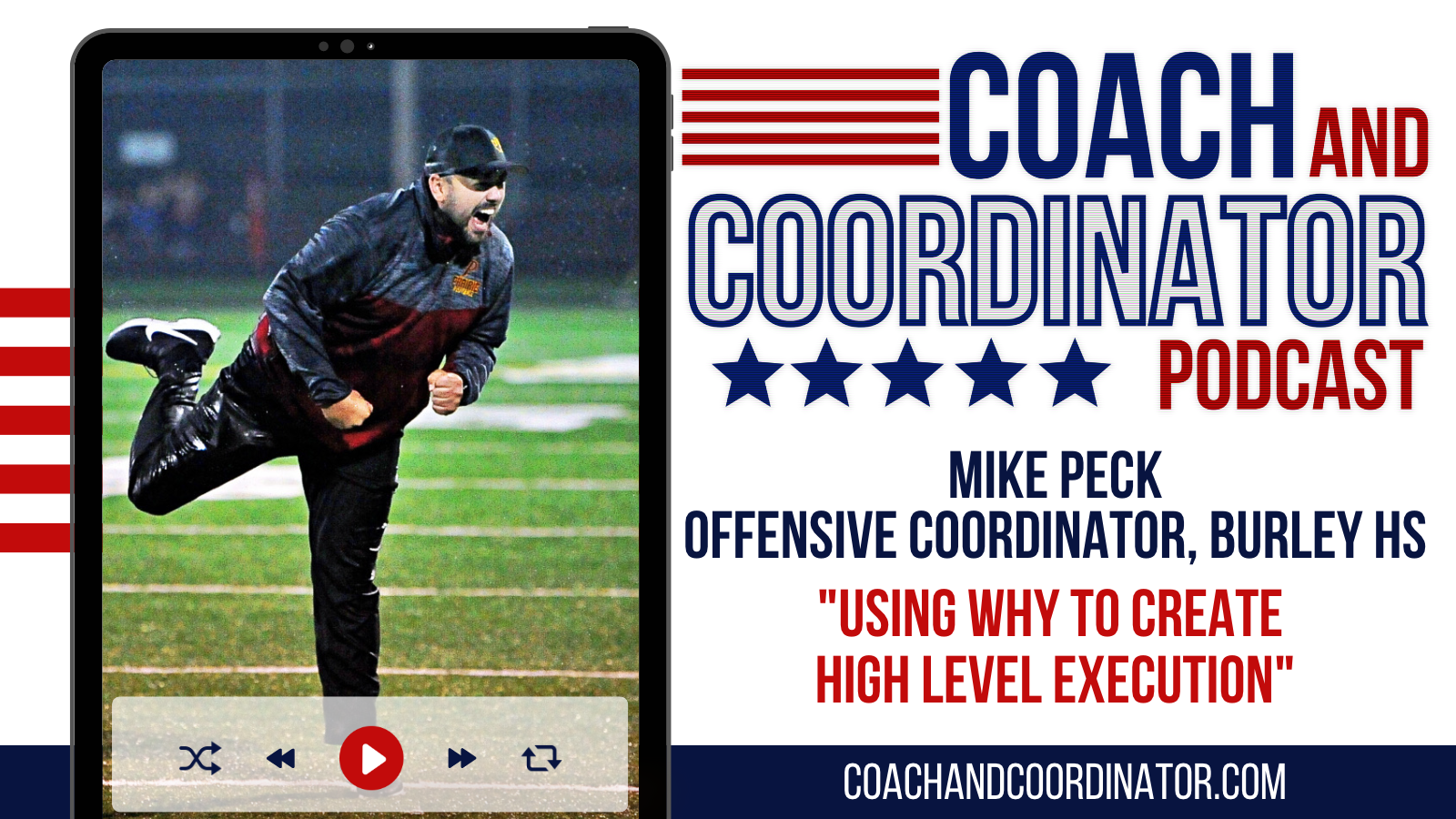
In this episode, Mike Peck digs into the what, how, and why his offense eclipsed 500 yards and 48 points per game in the 2022 season. Coach Peck details two areas he credits for creating this high level of execution – installation and practice.
Listen On:
“[Kids] want to know the ‘why’ behind things. And the more you can teach them the ‘why’, the more they buy in.”
– Mike Peck
Mike Peck is the offensive coordinator at Burley High School in Burley, Idaho. His offense put up some incredible numbers during the 2022 season, including 62 touchdowns, 1,805 rushing yards, and 3,204 passing yards. This output produced an average of over 500 yards and 48 points per game.
In this episode, Coach Peck outlines the what, how, and why behind his unit’s high-level execution. The conversation touches on his approach to year-round installation, quarterback school, a seven-day install format, and practice formats inclusive of situational periods and unscripted periods.
Follow Mike Peck on Twitter @CoachPeck11.
“One of our secret sauces that really helps us is our situational periods… We talk with the kids about why we’re calling what we are calling and what we’re trying to accomplish.”
– Mike Peck
Show Notes:
>Spread the Field
>Attack Horizontally and Vertically
>Base Out of 10 Personnel and Empty, But Highlight Different Personnel Year-To-Year
>Hang Your Hat on Runs and Passes for the Base Offense
>Two Factors That Create Execution: Installation and Practice
>The Players’ Understanding of Why
>Year-Round Installation Leading Up to the Season
>Front Loading for Better Learning
>Quarterback School
>The QB Should Be Out on the Field Teaching It with You
>Tools Used in the Classroom
>Quizzes and Competition
>Seven-Day Install Format
>Practice Format
>Early Outs, Walk-Throughs
>Situational Periods in Practice
>Unscripted Situations So Play Callers Get Work
>Debrief Periods So Players Understand What Happened and Why, Right or Wrong
>Coach Learning from the Debrief
>Kids Don’t Come in on Weekends
>Technology to Allow Coaches More Family Time
Additional Resource:
Related Episode:
The Winning Edge – Takeaways and Ideas for Implementation:
1) Teach the Why
I firmly believe our players need to get beyond the diagram as it is drawn. I’d always tell players, “quit just running the lines,” meaning that I wanted a deeper understanding so they could solve problems on the field.
Coach Peck makes the “why” an integral part of his process, and it leads to a higher level of execution. This process requires intention on the part of the coach. Whether it is through your own QB School or offseason installation, getting your players beyond rote memorization will pay dividends on game day.
2) Always Provide Context
The game is always played with a time on the clock, hash, yard line, and score differential. The more your players understand your system and plays within context, the better they can execute when they are faced with those different situations on game day.
Be situational in practices as much as you can. Always tie a scripted play to down and distance, and be sure it is in the mindset of your players in practice. That format will translate to game day if it is simply the way you do things.
3) Don’t Just Call Plays
Just like I tell players, “don’t just run the lines,” I’d tell myself, “don’t just be calling plays.” Coach Peck brought up a great idea to implement in practice with the head coach putting the play callers on the spot with a situation. The coach has to think quickly and make the call he’s planned for those situations.
Noel Mazzone talked about this idea on the podcast and how he calls the entire practice. He has someone chart what’s called and the situations so he can be sure he gets all of his game-planned plays repped. I think scripting what you need situationally and adding some of these unscripted “call it” periods creates that situation where both the play caller and the players get practice. The debrief at the end of this period is huge for learning and anchoring the idea of the “why.”


